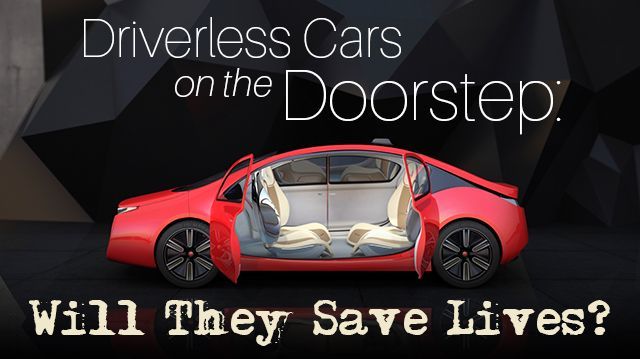
Every day, 80 people on average die in car crashes in the United States. That is nearly three times the number killed by guns.
Yet there are no people in the streets demanding the dismantling of every Nissan. Ford isn’t bombarded by protesters. Tesla is more often thought of as a white knight than a force of death. This is hardly surprising — how could our society operate without cars? Transportation is a necessary evil, no matter how many innocent lives it claims. Or is it?
Driverless cars are nearly here, and they promise to save American lives. Of course, Google was first to the game. Since their flagship vehicle started down the road a number of big name companies — Tesla, Ford, Nissan and Mercedes-Benz — are following in Google’s tire marks with plans to release driverless cars between 2020 and 2025. An analysis by Moody’s predicts driverless cars to be the norm in just three decades.
In terms of saving American lives, this is excellent news. Of the 33,000 deaths attributed to car accidents annually, 93% are the direct result of human error. The introduction of smarter cars and safety innovations over the past 15 years have caused the number of accidents drop by 50%. Cutting humans out altogether, proponents argue, will only make us safer.
Mark Goldfeder goes to far as to predict that human driving could become illegal. In a recent CNN article, he argues that the “reasonable driver” standard will slowly shift in response to driverless cars. In time, what was a reasonable mistake for a human will no longer make the cut in court.
“It is quite possible,” Goldfeder writes, “that in a matter of years the empirical evidence will be clear: When a stone sober human gets behind the wheel instead of letting the car drive itself, the danger to others increases so drastically that doing so will be barred by law, the same way we bar people who are drunk or otherwise impaired.”
He further predicts that our grandchildren won’t be particularly bothered by this shift in policy. On one hand, the quintessential 16-year-old dream on getting that first set of car keys is a marker of adulthood and freedom. On the other, so long as you’ve got the freedom to control where you’re going, does it really matter whether you’re physically at the wheel?
The safety implications are huge, but the cultural and economic implications of self-driving cars are just as exciting. A transport system that allows complete freedom of movement for much younger Americans might help even the socioeconomic playing field as all children are able to safely access activities outside of the home.
What could be more freeing to overworked parents than trusting the sedan to take Susie to soccer practice all on its own? Beyond seven-year-old Susie and her parents, every disabled and aging American would be able to freely and safely get from point A to point B.
We can also look forward to more spacious city landscape. Experts anticipate that driverless cars will require up to 90% less parking space. The idea is that spaces could be much more narrow, needn’t accommodate for human exit and entry and needn’t even be walking distance from urban centers. Cars can simply drop people off and conveniently park themselves out of the way.
Automated vehicles will also have an economic impact. Self-driving trucks will make transport of goods significantly less expensive. Taxi drivers will become a thing of the past. Uber will need to rethink their master plan, and likely already is. The car insurance industry will also be shaken up. As with any innovation, some jobs will be lost and others will be created.
Gas – or electricity – attendants might find themselves back in fashion as solo cars show up to refuel. New infrastructure on the roads to help driverless cars operate at optimal capacity will need to be developed and maintained.
Creative destruction is inevitable. Given the American lives saved, efficiency gained and time recouped, driverless cars will be worth whatever economic reshuffling they require.
-Erin Wildermuth
Erin is a freelance writer, photographer and filmmaker. She is passionate about moving beyond party politics to identify pragmatic solutions to social, economic and political problems. Her writing has appeared in the Washington Times, the American Spectator, Doublethink and Scuba Diver Magazine. She spends her free time scuba diving, snowboarding and ravenously reading popular nonfiction. Erin holds a master’s degree in International Political Economy from the London School of Economics.
Sources:
http://www.cnn.com/2016/03/08/opinions/google-drive-your-grandkids-goldfeder/index.html
http://www.nasdaq.com/article/driverless-cars-or-electric-vehicles-which-will-dominate-the-future-cm602297
http://www.techworld.com/personal-tech/huge-impact-driverless-cars-will-have-on-parking-urban-landscapes-3637704
http://www.brainerddispatch.com/news/state/4001596-capitol-chatter-driverless-cars-struggle-when-looking-lane-lines
http://www.smh.com.au/business/driverless-cars-to-cull-insurer-profits-20160330-gnttkc.html

